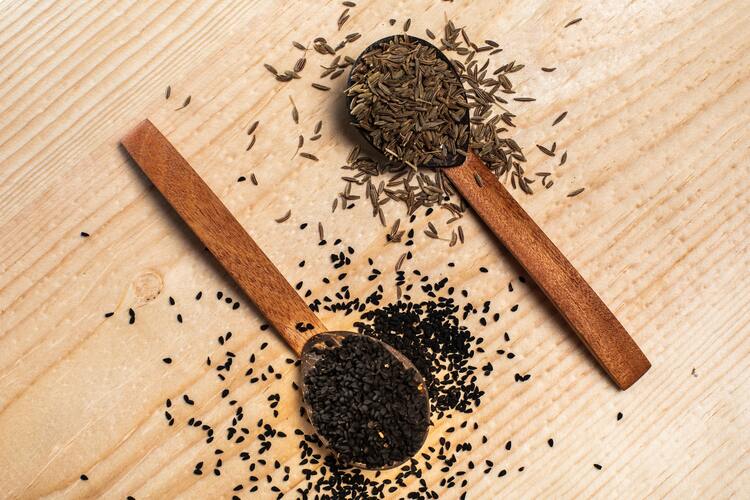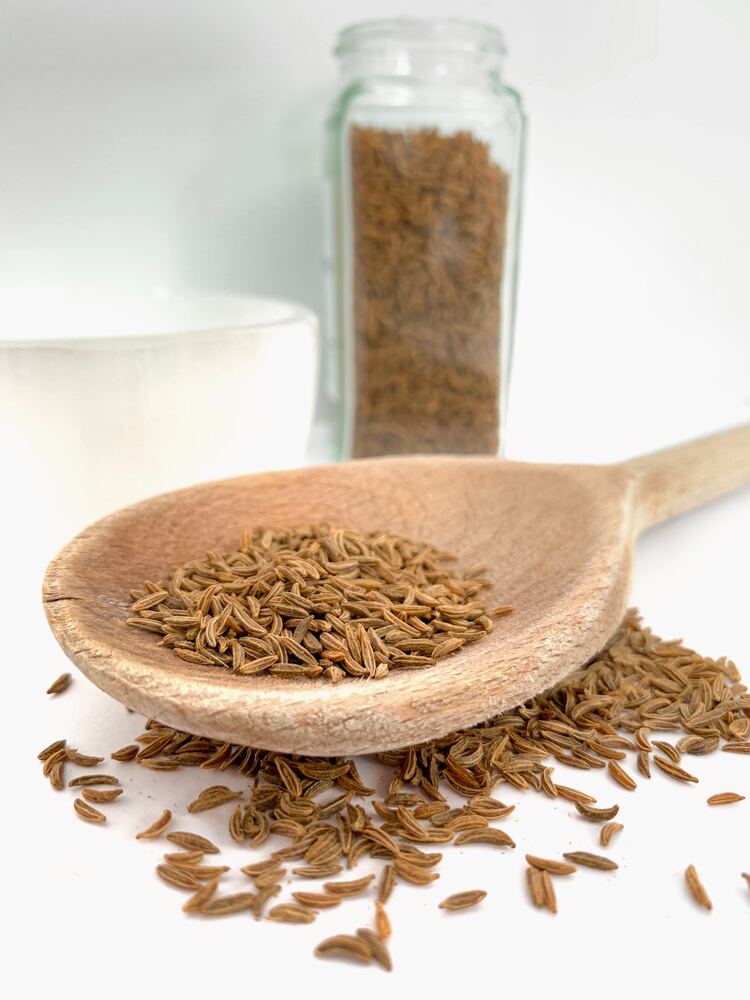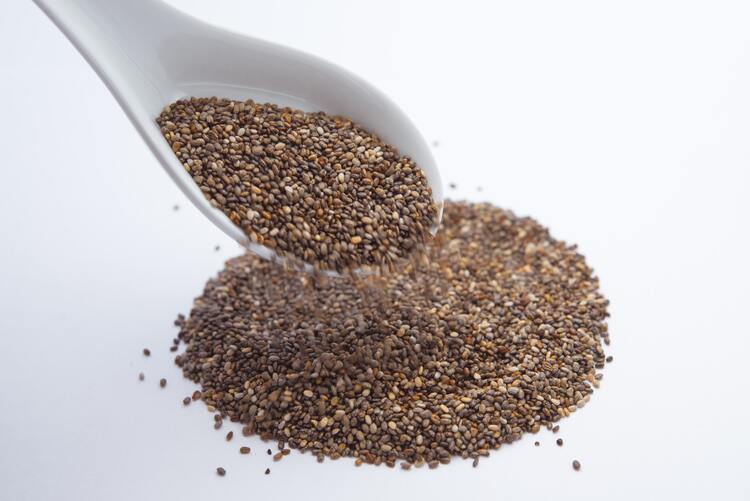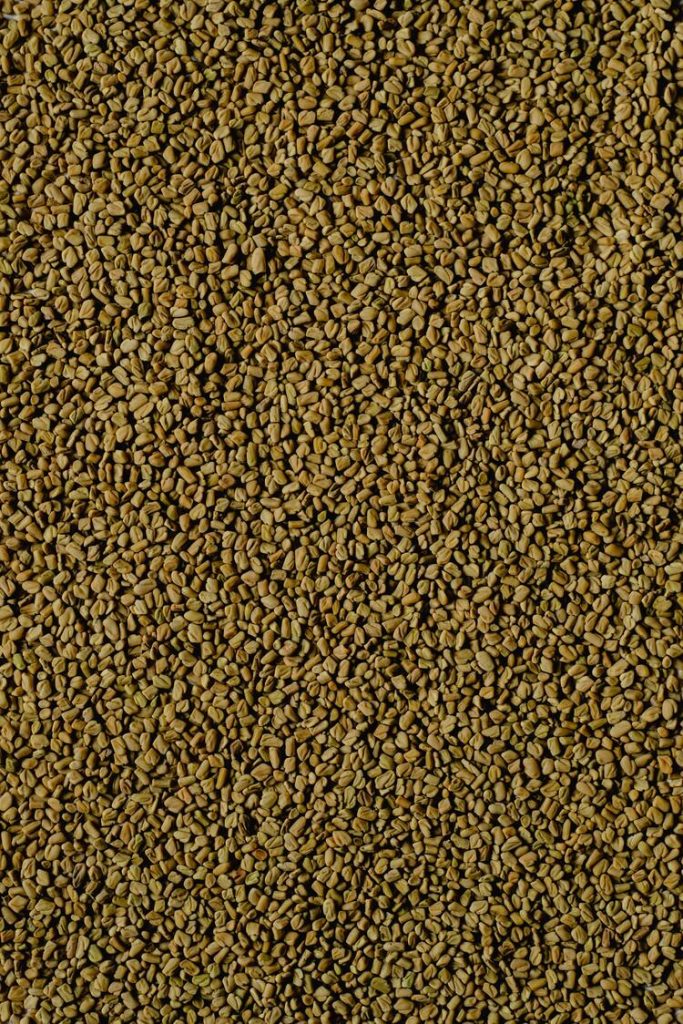Seed teas are a refreshing addition to your beverage collection, offering delectable flavors and many health benefits.
You might be familiar with herbal teas, but seed teas take the concept a step further, showcasing the flavor profiles and nutrients found within various seeds. From traditional options like fennel and caraway to the more exotic, such as chia and hemp, there’s a seed tea waiting for you to discover.
This article delves into the world of seed teas. After reading, you’ll become acquainted with an array of seeds that can be brewed into delicious and nourishing drinks.
Please note: This article contains affiliate links, meaning I may earn a commission if you make a purchase by clicking a link. Of course, this comes at no extra cost to you and helps me keep offering readers solid information.

Types of Seed Teas
One might wonder about the difference between traditional tea and seed tea. Traditional tea, such as black, green, or oolong, comes from the leaves of the Camellia sinensis plant, while herbal teas can be made from various plant parts like flowers, leaves, or fruits. Seed teas, however, specifically use seeds as their primary ingredient.
Seeds are the matured and fertilized ovules of flowering plants. They serve as the reproductive units of these plants and are crucial for their propagation and continuation of the species (now, that is profound).
You’ll find that seed teas come with rich and distinctive flavors. Depending on the seeds, the taste can range from earthy and nutty to slightly sweet and fruity. Remember that each seed tea type may have a specific brewing method and ideal steeping times, which can impact the overall taste profile.
A significant aspect of seed teas is their caffeine content or lack thereof. Unlike traditional teas, seed-based infusions are typically caffeine-free, making them suitable for those sensitive to or trying to avoid caffeine intake.
Here are a few popular seed teas to try:
Chia Seed Tea
Originating from Central and South America, particularly Mexico, chia seed tea is a refreshing beverage enjoyed globally. It boasts a mild, nutty flavor and a slightly gelatinous texture, with subtle earthy aromas. Rich in fiber, omega-3 fatty acids, and antioxidants, it’s known for hydration and digestive support.
Steep chia seeds for 10-15 minutes, and customize with citrus, honey, or mint. It’s versatile, serving as a smoothie base or nutritious breakfast drink.
Fennel Seed Tea
Hailing from the Mediterranean region, fennel seed tea is a beloved herbal infusion in the Mediterranean and Indian cuisines. Its sweet, licorice-like flavor comes with a pleasant, mildly aromatic fragrance.
Fennel seeds are renowned for their digestive properties and may alleviate bloating and indigestion. Steep for 5-7 minutes and enhance the flavor with honey, lemon, or ginger. It’s often sipped after meals and used in culinary dishes.
Fenugreek Seed Tea
Fenugreek seed tea is derived from fenugreek seeds, commonly used in Indian and Middle Eastern cuisines. It has a slightly bitter taste with earthy undertones.
Fenugreek is known for its potential digestive benefits and may aid in controlling blood sugar levels. Steep for 5-7 minutes and customize with honey or spices like cinnamon and cardamom.
Cardamom Seed Tea
Cardamom seed tea, originating from South Asia and the Middle East, offers a rich and aromatic experience. It has a warm and slightly citrusy flavor. Cardamom is renowned for its potential digestive and calming properties.
Steep for 5-7 minutes and customize with a dash of milk and sweetener, such as honey or sugar. It’s commonly enjoyed in masala chai blends.
Cumin Seed Tea
Cumin seeds, widely used in the Middle East and South Asia, are the foundation of cumin seed tea. It offers a warm, earthy, slightly spicy flavor with a fragrant aroma.
Cumin seeds are believed to aid digestion and possess potential anti-inflammatory properties. Steep them for 5-7 minutes, and consider adding lemon juice or a pinch of cinnamon for extra flavor. This tea is versatile, enhancing soups, stews, and rice dishes.
Coriander Seed Tea
Coriander seeds yield a fragrant and citrusy tea (often called “dhania chai” in India). They have potential digestive and anti-inflammatory benefits. Steep for 5-7 minutes, and customize with honey or citrus zest. Coriander seed tea complements many culinary recipes, adding depth to dishes.
Anise Seed Tea
Anise seed tea delivers a strong licorice flavor and is known for its digestive and mild sedative properties. This tea is popular in various regions worldwide, especially in areas where anise (Pimpinella anisum) is cultivated.
Steep for about 5 minutes, and sweeten with honey if desired. It’s often enjoyed as a soothing nighttime tea.
Caraway Seed Tea
Caraway seed tea has a slightly spicy and earthy flavor. It’s believed to aid digestion. Steep for 5-7 minutes and customize with a dash of honey or lemon juice. This tea can be a comforting post-meal choice.
Hemp Seed Tea
Hemp seed tea has a nutty and earthy flavor, with potential health benefits as a source of omega-3 fatty acids and protein. Steep hemp seeds for 10-15 minutes, and customize with herbs or a touch of honey.
Sesame Seed Tea
Sesame seed tea has a mild, nutty flavor, often made by steeping roasted sesame seeds. While not a common beverage, it’s used in some Asian cultures for its potential health benefits.
Sesame seeds are used to prepare various beverages, though.
Similar to almond or soy milk, sesame seed milk is made by blending sesame seeds with water and straining the mixture to create a creamy, dairy-free milk alternative.
Tahini, a paste made from ground sesame seeds, is often used in smoothies. It adds a creamy texture and a nutty flavor to the drink. Common ingredients in tahini smoothies include bananas, dates, honey, and yogurt.
In some Latin American countries (like Puerto Rico), sesame seeds are used to prepare a version of horchata, a sweet, milky beverage. The sesame seeds are blended with water, rice, or other grains and then sweetened with sugar, cinnamon, and vanilla.
Lotus Seed Tea
Lotus seed tea is made from the seeds of the lotus plant and is particularly popular in Asian cuisines, especially in China and Vietnam. It has a delicate, nutty flavor with a hint of floral notes.
Lotus seeds are believed to have various health benefits, including promoting relaxation and aiding sleep. Steep the seeds for about 10-15 minutes, and enjoy it as a calming and aromatic tea.

Additional Ingredients in Seed Teas
When making seed teas, you can customize your blend with additional ingredients to enhance the flavor and potential health benefits. These add-ins complement the seeds and can create a more enjoyable experience.
Here are some ingredients you can consider incorporating into your seed teas.
Ginger adds a spicy, warming flavor to your seed tea and can help with digestion and reduce inflammation. Fennel seeds pair exceptionally well with ginger, creating a bold and vibrant blend.
Mint brings a fresh and cooling sensation while sipping on your seed tea. Combined with chamomile or fennel seeds, mint elevates the taste and offers soothing properties, often promoting relaxation and digestive comfort.
Consider adding licorice or aniseed to your seed tea for a touch of natural sweetness. Both ingredients provide a sweet and aromatic taste while also supporting digestion and immune function.
Incorporating various spices like cinnamon, cloves, or cardamom is an exciting way to revamp the flavor profiles of your seed tea. Spices can help warm the tea and may deliver additional health benefits, such as antioxidant and anti-inflammatory properties.
Consider adding ginseng, rosehip, or rooibos to your seed tea for an extra boost. These ingredients provide unique flavors and further enrich the overall nutrient content. Ginseng is known for its potential energy-boosting properties, while rosehip and rooibos contain rich antioxidants.
How to Brew Seed Teas
To begin brewing your seed tea, choose your desired seeds, which can vary depending on your preference and the flavor you’re aiming for.
Once you’ve chosen your seeds, follow these simple steps:
1. Measure your seeds. A general guideline is to use about 1 teaspoon of seeds per cup of water. Feel free to adjust based on your taste preference or the seed type.
2. Crush the seeds. Use a mortar and pestle or the back of a spoon to crush the seeds lightly. This will help release their natural oils and enhance the flavors of your tea.
3. Heat the water. Bring your water to a gentle simmer, not a full boil. Aim for around 200°F (93°C), as overheated water can produce a bitter tea.
4. Steep the seeds. Add the crushed seeds to the hot water and steep them appropriately. This steeping time will vary depending on the seed type and desired strength. We discussed specific steeping times in the “Types of Seed Teas” section. When in doubt, follow package instructions.
5. Strain the tea. Pour the tea through a fine mesh strainer to remove the seeds from the liquid, ensuring a smooth and enjoyable tea experience. You may keep the strained seeds for a second brewing if you wish.
- Optional: You can add your favorite sweeteners or herbs and spices to enhance the flavor of your seed tea. Some popular additives include:
- Honey or agave
- Cinnamon
- Cardamom
Enjoy your soothing, aromatic beverage!

Health Benefits of Seed Teas
Seed teas offer a variety of benefits to boost your overall well-being.
First and foremost, seed teas are rich in antioxidants. These compounds help fight the harmful effects of free radicals in your body, reducing oxidative stress. Doing so lowers the risk of developing chronic health problems like cancer, heart disease, and diabetes.
Seed teas also contain essential vitamins and minerals that contribute to good health. For instance, iron is an essential mineral present in some seed teas. Sufficient iron intake ensures proper oxygen transport in your body and prevents anemia.
Another major advantage of consuming seed teas is their ability to help regulate cholesterol levels. By promoting a healthy balance of good (HDL) and bad (LDL) cholesterol, these teas may lower the risk of heart disease.
Buying Guide
Here are some important considerations to keep in mind when buying seed teas:
Quality of Seeds: Opt for high-quality seeds. Look for teas made from fresh and well-sourced seeds, as the quality of the seeds greatly impacts the flavor and aroma of the tea.
Source and Origin: Check the source and origin of the seeds. Some seed teas may have specific regions or countries known for producing exceptional seeds. Understanding the source can provide insights into the tea’s quality.
Packaging: Pay attention to the packaging. Seed teas should be stored in airtight or resealable bags to maintain freshness. Packaging should also provide clear information about the tea’s contents and origin.
Brand Reputation: Research the reputation of the brand. Review reviews and check for certifications or awards indicating the brand’s commitment to quality.
Price: Compare prices among different brands and sellers. While quality is essential, finding a seed tea that fits your budget is also important.
Allergies and Sensitivities: If you have allergies or sensitivities, carefully review the tea’s ingredients to ensure it’s safe for consumption.
If you want to purchase bark online, please take into consideration the following recommendations:
Buddha Teas Organic Fennel Seed Tea

Buddha Teas Organic Fenugreek Seed Tea

BetterBody Foods Organic Chia Seeds

Frequently Asked Questions
What is the process of making tea from seeds?
Select high-quality seeds from medicinal herbs or plants to make tea from seeds. Rinse the seeds thoroughly to clean them. Next, gently crush or grind the seeds using a mortar and pestle to release their natural oils and flavors.
Transfer the crushed seeds to a teapot or infuser. Boil water and pour it over the seeds, allowing them to steep for a few minutes. The steeping time will vary depending on the type of seed and your taste. Once the tea reaches your desired strength, strain and serve it.
How do medicinal herb seeds benefit health?
Medicinal herb seeds offer various health benefits, containing numerous essential nutrients, antioxidants, and phytochemicals. These compounds can help to strengthen your immune system, reduce inflammation, and promote overall well-being. For example, some seeds, such as fennel and anise, may improve digestion and alleviate gastrointestinal issues.
Other seeds, like milk thistle, have been known to support liver health and detoxification. Remember that each seed variety offers unique benefits, so it’s crucial to research and choose the seeds that best suit your health needs.
Are there any alternative teas made from mushroom or fenugreek seeds?
Yes, alternative teas made from mushrooms, such as chaga or reishi, and fenugreek seeds are available. Mushroom teas are gaining popularity due to their potential immune-boosting and anti-inflammatory properties. To make mushroom tea, simmer small pieces or powder of the desired mushroom in water for about 20-30 minutes, strain, and enjoy.
Fenugreek seed tea is another alternative, traditionally used to support digestion, improve lactation in nursing mothers, and maintain healthy blood sugar levels. To make fenugreek tea, steep crushed seeds in boiling water for 10-15 minutes, strain, and sip.
As with any herbal tea or alternative remedy, it’s essential to consult with a healthcare professional before incorporating new teas into your routine, especially if you have existing health conditions or are taking medications.

I hope you liked the article! See you next time!
Have you tried any of the teas mentioned in the article?
More About Herbal Tea
What Does Burdock Root Tea Taste Like?
What Does Mullein Tea Taste Like?
What Does Raspberry Leaf Tea Taste Like?
What Does Mugwort Tea Taste Like?